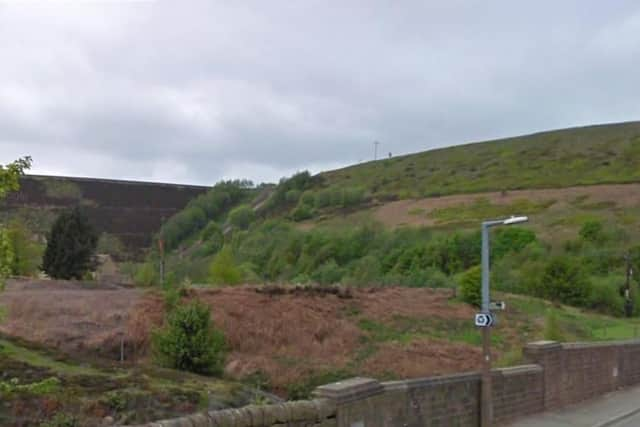Green light to remove Peak District electricity pylons despite wildlife objections
and live on Freeview channel 276
The pylons, which cover a distance of 1.8km from Dunford Bridge in the Peak District National Park to Wogden Foot, will be removed, and replaced by underground cables, which will run beneath the Trans Pennine Trail, from the entrance of the Woodhead Tunnel to a proposed new end compound.
Improvements will also be made to the car park at Brook Hill Lane, and a temporary Trans Pennine Trail used for about 18 months while construction is ongoing.
Advertisement
Hide AdAdvertisement
Hide AdTwo bridges will also be erected over the River Don - one temporary and one will be made permanent.


The proposal is one of four National Grid visual impact provision projects which aim to use £500 million from Ofgem to move electricity cables underground in nationally important landscapes.
The aim of the project is to reduce the visual impact of existing electricity infrastructure in Areas of Outstanding Natural Beauty and national parks.
Objecting to the plans, Laura Hobbs, from the Yorkshire Wildlife Trust, told Barnsley Council's planning board: “This application would result in permanent loss of part of Wogden Foot local wildlife site.”
Advertisement
Hide AdAdvertisement
Hide AdPete Wall, of the Barnsley Biodiversity Trust, raised concerns over the habitat of the rare Willow Tits that populate the area.
He said: “Coal mining brought a lot of prosperity to Barnsley but when it left, it left a lot of habitat that needed improvement and we've done a lot of work on that.
“Our area was chosen against all the odds to be one of only 10 nature improvement areas by the Department for Environment, Food & Rural Affairs in 2011.
“Yorkshire Wildlife Trust is leading a national ‘back from the brink’ project on willow tits to protect and learn about them.
Advertisement
Hide AdAdvertisement
Hide Ad“Willow tits are the most endangered species in the UK, but we've still got a decent population in Barnsley and we're getting visitors to come and look at them.
“For me, willow tits epitomise Barnsley's fight back from its bleak, industrial past.
“We’d love to see these pylons removed in a well-managed scheme, but this isn’t it. They are not more important than the extinction of a bird species.”
Chris Baines, VIPP stakeholder advisory group chairman, said: “We selected this scheme as one of only four of its kind, following assessment of more than 100 alternatives.
Advertisement
Hide AdAdvertisement
Hide Ad“The valley around Dunford Bridge is beautiful - a classic dark peak. Removal of the pylons and power lines will mean people can enjoy this truly natural beauty for the first time in generations.
“There are clear plans to minimise short-term disturbance and invest in both habitat restoration and full reinstatement of the trail.
“I'm confident the ecological integrity of the valley and its nature reserve can be sustained following the operation.
“If approved, this will be the first project of its kind in a national park anywhere. It will be transformational for the Upper Don Valley and I believe it will bring huge long-term environmental, recreational and economic benefits.”
Councillors approved the scheme.
A message from the Editor:
Thank you for reading this story on our website. While I have your attention, I also have an important request to make of you.
With the coronavirus lockdown having a major impact on many of our advertisers - and consequently the revenue we receive - we are more reliant than ever on you taking out a digital subscription.
Subscribe to The Star website and enjoy unlimited access to local news and information online and on our app. With a digital subscription, you can read more than 5 articles, see fewer ads, enjoy faster load times, and get access to exclusive newsletters and content.
Visit https://www.thestar.co.uk/subscriptions now to sign up.Our journalism costs money and we rely on advertising, print and digital revenues to help to support them. By supporting us, we are able to support you in providing trusted, fact-checked content for this website.
Comment Guidelines
National World encourages reader discussion on our stories. User feedback, insights and back-and-forth exchanges add a rich layer of context to reporting. Please review our Community Guidelines before commenting.